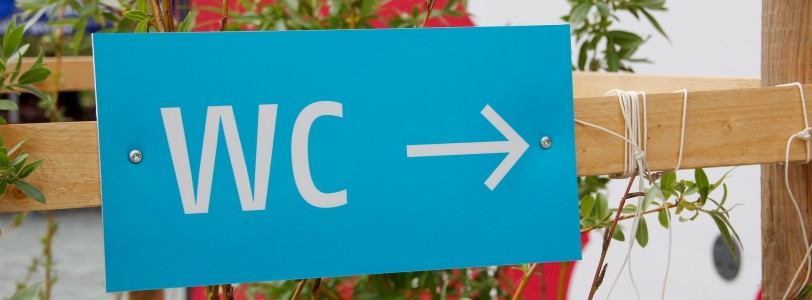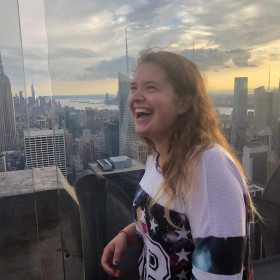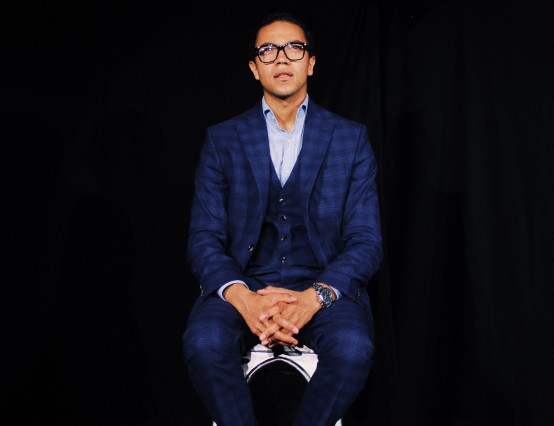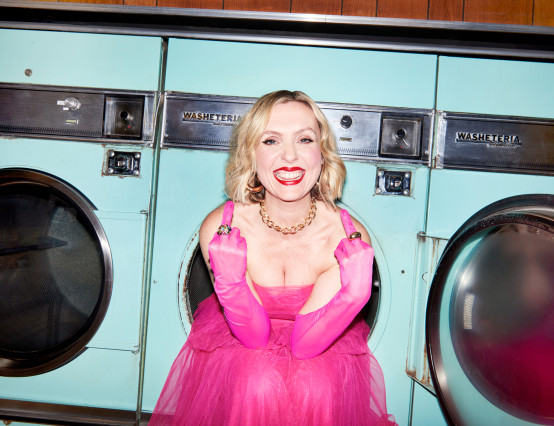Essentially, when I’m stressed - and sometimes even when I’m not - my reaction is physical, and my bowels freak out. For IBS sufferers this can lead to either constipation or diarrhoea. When one of these two things occurs, it is often referred to as an ‘attack’. You’re probably cringing already reading this - I’m half cringing writing it - so don’t worry; we shorten them to C and D to make it less graphic. I suffer with D, which I honestly believe is worse, but any sufferer of C will fiercely argue otherwise. Just like anything, we always want what we don’t have. Of course, what IBS sufferers really want is not to suffer from IBS at all.
No one likes talking about excretion, I get that. Me least of all. It’s a topic I avoid as much as possible, but one I can’t altogether hide from when it affects my life so significantly. You see, certain foods, and certain mental states, affect my bowels, and there’s only so much I can do about that.
I was told I probably had IBS just over two years ago, after seeing a gastroenterologist and dietician about the stomach problems I’ve suffered from my entire life. Unfortunately, IBS cannot be positively diagnosed; for me, other illnesses were simply ruled out until it was the most likely explanation. I was then put on a specific IBS diet, and when that helped reduce my symptoms, it became clear I had IBS.
The diet is called the Low FODMAP diet, and it eliminates all of the food groups that are known to affect IBS. FODMAP stands for fermentable oligosaccharides, disaccharides, monosaccharides and polyols, which are all carbohydrates that are generally digested poorly and can lead to bloating, wind and stomach pain. In sufferers of IBS these symptoms are much more common, and can be extreme.
The Low FODMAP diet cuts out all of those carbohydrates, which are found in numerous foods including onion, garlic, wheat, lactose, beans, legumes and various fruits and vegetables. What you’re left with is…not a lot, particularly if you’re vegan, like me. In fact, when I first started the diet I had to start eating fish again, and gradually worked my way back to veganism as I worked out what I could and couldn’t eat. That was a very difficult time for me, as my morals and my health clashed; obviously I put my health first, but I was less than happy about it.
The diet is a lifesaver, as far as I’m concerned; I sat my AS levels just three months after being diagnosed with IBS and - thanks to being Low FODMAP - didn’t suffer nearly as badly as I expected to, despite the high level of stress I was under. I still had attacks, but nowhere near as frequently as I would have without the diet. I was, however, still in a lot of pain most of the time, and as ibuprofen can worsen IBS, I could only take paracetamol, which was usually ineffective. I became infamous at school for always carrying around a hot water bottle, which is still the only thing that really helps my stomach aches. I have a semi-permanent rash on my stomach from the heat, and have actually burned through the skin on one occasion, but sometimes the pain is so bad I would rather burn my skin and have the comfort of the hot water bottle.
Although it can be a great help, the diet is very restrictive, and can be difficult to stick to. Luckily, you don’t have to follow it all the time. IBS is different for everyone, but it generally flares up when you’re stressed. So, supposedly, if you’re not stressed, you don’t have to be Low FODMAP.
Except, even if you’re not stressed at all, you can have an attack out of the blue. In fact, I had multiple attacks during the holidays after my AS levels, even though I was Low FODMAP and wasn’t even the slightest bit stressed. It got to the point where I was in tears almost every other day, unable to understand why my body was still so unhappy, and frustrated by how little I could eat. It took a very long time, and several months of counselling, for me to really understand myself, both mentally and physically, which in turn helped me control my IBS. But I’m still not totally on top of it. I still have attacks from time to time, and while often I know the cause, sometimes they’re just completely random. I might be more in control now, but that doesn’t mean IBS doesn’t still have a significant impact on my life.
I am so completely terrified of having an attack while I’m out that I don’t go anywhere without two Imodium tablets (Imodium stops diarrhoea) in my pocket. Knowing that I’m going to do something stressful stresses me out, because I know the stress will trigger my IBS, so I get stressed before the stressful thing is even occurring and that triggers my IBS already, so I basically have to go Low FODMAP for several days before any kind of stressful situation. What’s more, it’s not just stress that’s a trigger for me; excitement can also be a trigger! Imagine that: your body punishing you for being excited…
And the worst thing is, no one really understands it, because no one wants to know. I’ve never explained my IBS like I have in this article to anyone, because I’m almost embarrassed to talk about it. It’s just so gross. But it’s my life. So, no one ever really understands that I might have made plans six months in advance, but still might have to cancel them two hours beforehand because I’m stuck on the toilet. No one really gets it when I say I don’t feel like going out, because my IBS has flared up and I feel like crap. No one really knows that when I hesitate to make plans it’s usually because I’m afraid of having to cancel them, afraid of going out, afraid of not being near a toilet or my hot water bottle, afraid of being anywhere except curled up in my room.
That’s a pretty bleak picture, isn’t it? I don’t mean to sound so dreary - my life is pretty great, and I’ve done some incredible things this year despite my IBS. But it’s always there, and I’m always aware of it, and I don’t make a single decision without wondering how my IBS will be impacted by it. And IBS is really common - it’s estimated that between 10-15% of the world’s population has it. And we don’t, or won’t, or can’t talk about it.
But I think that needs to change. So this is me, sharing my experience with IBS, in the hopes that those who also suffer will take solace in knowing they aren’t alone, and that those who don’t will understand better what it’s like to live your life with an illness no one wants to know about. My journey with IBS isn’t over - it will affect me for the rest of my life - but I hope that if I’m less ashamed and embarrassed by it, I’ll be able to deal with it more easily.
IBS - the illness no one wants to talk about
I have Irritable Bowel Syndrome. What does that mean? Well, my favourite explanation is: ‘my stomach hates me’. That’s not the scientific definition, as per, but for me it sums up the experience of having IBS.










Well done for talking about it! IBS must be absolutely awful.